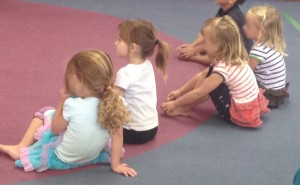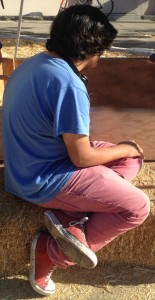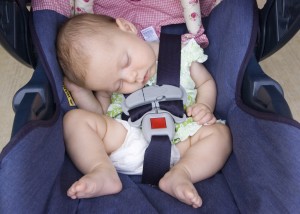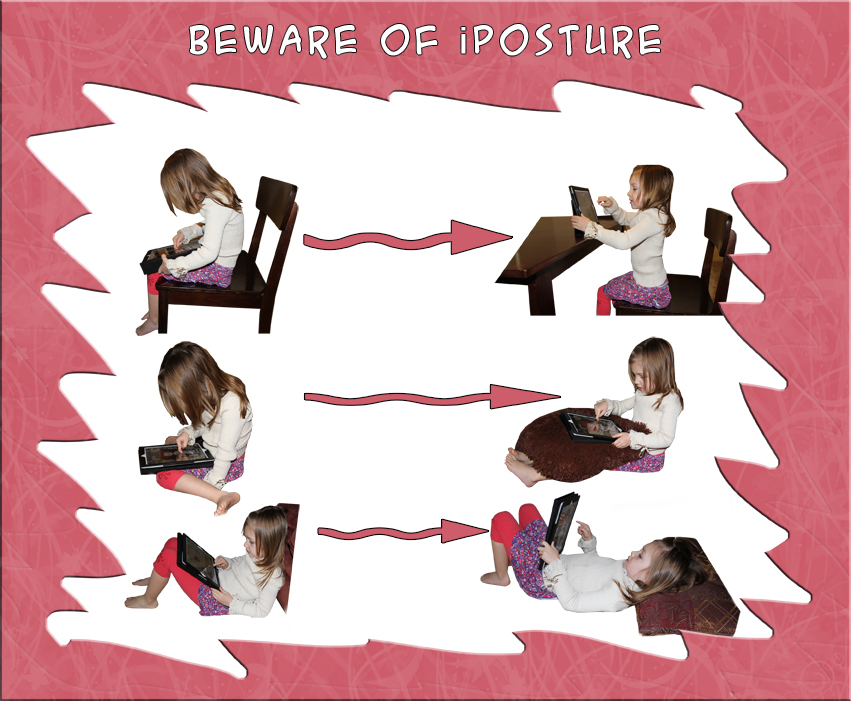Bad Habits in Children
- Two thirds of parents report never giving posture advice to their children
- A typical 18-24 year old spends 8.83 hours a day in front of a screen
- 84 per cent of 18-21 year olds have admitted to suffering back pain in the last 12 months
When babies first learn to sit they naturally elongate the spine. This is the position that requires the least muscle strength and gains the most support from the skeletal system. When letting the skeleton do the work of holding you up, the muscles can be free and relaxed.
A well-grounded pelvis is the most stable and balanced foundation for sitting. Babies are essentially balancing in the sitting position as opposed to holding themselves there. Their elongated, relaxed bodies naturally gravitate to an efficient and comfortable position.
Learning to walk is no different. A new walker will strive to find the most balanced position, which is with a long spine, a neutral pelvis, and a balanced head. The weight bearing joints are stacked on top of each other and there is a quality of lengthening throughout the body.
The 4 year-old slump
Around preschool age most children in first world countries begin to slump. This is most likely due to a combination of influences: adults modeling bad posture, spending more time sitting, and unsupportive furniture.
According to a 2013 survey by Simplyhealth, the UK’s biggest health plan provider, 59% of parents today reported never once asking their children to mind their posture. Unfortunately, slumping posture in children is so common that it doesn’t even occur to most adults to correct it.
 Children are eager to learn about their bodies and often respond well to gentle posture guidance. For example, I tell my preschool aged daughter to always pretend like she is wearing a princess crown so that she extends her neck upwards and keeps her head balanced.
Children are eager to learn about their bodies and often respond well to gentle posture guidance. For example, I tell my preschool aged daughter to always pretend like she is wearing a princess crown so that she extends her neck upwards and keeps her head balanced.
The photo to the right shows five children sitting in class. Four of them are exhibiting the typical preschool posture, which is juxtaposed by the girl in proper alignment. She is anchored on her sitz bones, while all of the other children are rounding their backs and sitting on the back of the pelvis.
Slumping in older children
School age children spend a growing amount of their free time watching TV or playing with hand-held devices. Most people do not have supportive furniture in their living rooms, leaving children mold their spines to the shape of the sofa and reinforcing their bad habits. Playing with a hand-held device encourages the neck and shoulders to roll forward since most people hold them a waist level. Encouraging children to bring the screen towards the head, rather than vice versa, can save them from developing the forward head posture.
The epidemic of iPosture has caused a generation of “digital natives” to report higher rates of back pain than their parents’ generation. As American posture gets worse, young adults experience more pain, spend more money on remedies, and miss more work due to an aching back. Back pain is the number two reason for doctors visits in this country, outnumbered only by upper-respiratory infections.
What should I say to my child?
Showing children pictures of good an bad alignment can go a long way. Once they can identify the difference between good and bad posture in others they can start to feel it in their own bodies. Once they understand that bad posture is ugly and unhealthy they will be motivated to elongate.
If they know where their sitz bones are and know how to elongate
the spine they will have more physical stamina and less pain throughout life. But be careful that you aren’t simply telling them to sit up straight. Having an anchored pelvis, a stacked spine, a long neck, a balanced head and a quality of relaxation. Erect posture that comes from a place of tension is not healthy. (Posture tips for sitting, standing and bending are available on this website.)
Babies are set up for failure
Our culture is convinced that a tucked pelvis and a rounded spine is the most comfortable sitting position, so we design our furniture to put us in that position. Baby furniture is no exception. Car seats and strollers force the body into an exaggerated slump, where they stay for extended periods of time.
Even though children will naturally find good posture when they are learning to sit up and walk, putting them in collapsed posture early in life will make it much easier to transition into bad habits later on.
In order to combat the effects of poorly designed baby furniture, you can place a forward sloping wedge under a baby’s pelvis to put it into a neutral position.
Be a role model
Children naturally imitate the behavior of adults around them. If you care about your posture, so will your children. But that isn’t the only reason to take care of your own posture, you will be a more energetic and pain-free parent as a result. Children make excellent “posture buddies”. You and your child can learn about the benefits of good posture together and help each other from falling back into bad habits.
Sources:
Natural Posture for Pain-Free Living.
Porter, Kathleen. Healing Arts Press, 2013.
Texting-While-Slouching Is Causing an ‘iPosture’ Epidemic
TIME magazine By Olivia B. Waxman Oct. 02, 2013
The Great Back Pain Debate.
Kailb, Claudia.Newsweek. May 2004








